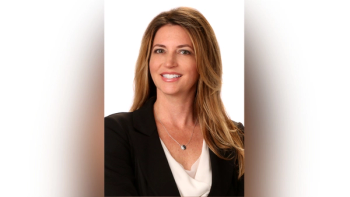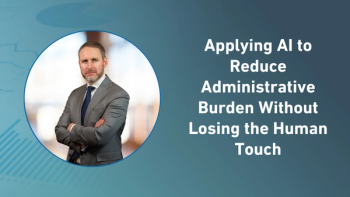
- Applied Clinical Trials-02-01-2025
- Volume 34
- Issue 1
The Art of Saying No: Navigating Ineligibility Conversations with Clinical Trial Patients
Engaging with ineligible participants can transform a potentially negative experience into a positive one.
In clinical trials, every conversation with a patient carries weight, but few are as delicate as the moment we must tell a patient they are ineligible for a study.
Effectively managing this conversation can not only preserve the dignity of the patient but also maintain their interest in future research and clinical trial opportunities. Engaging with ineligible participants can transform a potentially negative experience into a positive one, fostering a community of informed and motivated research advocates.
The Impact of ineligibility
Not all clinical trials are equal. Some represent an opportunity to make a buck on the side, but others are a gateway to treatment not otherwise offered. “Being told you’re not eligible for a trial can be devastating for patients, especially those with limited treatment options,” says Tiffany Papagiannopoulos, a patient engagement specialist at TrialScreen.
Research has shown that for patients excluded from trials, the impact extends beyond immediate disappointment, with reports of increased anxiety and decreased hope for their treatment outcomes.1
“Unfortunately, while clinical trials have the potential to provide patients with more treatment options, this is not their primary purpose,” says Dr Andrew Davaris, principal investigator from the Burnley Street Medical Group. “They are there to answer a scientific question—and often have quite strict inclusion/exclusion criteria in order to achieve that goal. Navigating the balance between the scientific goals and the human factors involved in research is always challenging.”
The importance of effective and empathetic communication
Communicating ineligibility requires a thoughtful approach. Stef, a clinical trial participant, shares his experience: “When I was told I wasn’t eligible, I understood logically that medications can get in the way, but I didn’t expect to be at a dead end so quickly.”
He emphasizes the importance of respectful communication, noting, “I know I’m not medically trained, but I did want to know more about why I wasn’t eligible and a simple ‘thank you for your interest’ would also have been nice.”
Language choice plays a crucial role in these conversations. Research focused on patient experience suggests using phrases such as “the trial is not suitable for you” rather than “ineligible,” as it feels less objectifying and keeps the door open for other treatment options. Input from consumer advisory boards has highlighted the importance of inclusive, empathetic language in these sensitive discussions.2
As Michelle Gallaher, CEO of Cerulea Clinical Trials, points out: “Clinical trials offer hope, and when someone is told they’re ineligible, it’s often not the first disappointment in their healthcare journey. How we handle these conversations can significantly influence participants’ willingness to engage in future trials.”
Strategies for keeping ineligible participants engaged
“In early-phase oncology studies, many patients see clinical trials as a last hope, making disqualification deeply disappointing,” says Jennifer Teti, vice president, head of clinical operations at Third Arc Bio. “If the screen failure is due to the patient lacking the right biomarker, explaining that the drug wouldn’t work without it and could cause harmful side effects can help ease their disappointment. Offering alternative opportunities, such as joining a research community forum or learning about other trials, can help keep them engaged and supported.”
Studies consistently show that altruism drives research participation, with most individuals motivated by the opportunity to advance medical understanding and potentially help future patients.1 Strategies for keeping ineligible participants engaged include:
- Create an online community platform where ineligible participants can connect with other research advocates, share experiences, and access information about upcoming trials.
- Maintain communication by providing updates on future trials that may suit their profiles. This ongoing engagement can enhance participant retention and keep them interested in the research process.
- Offer alternative opportunities to be involved, such as serving as patient or consumer advisors. This allows ineligible participants to contribute valuable insights to the clinical study designs and protocols, keeping them engaged while enriching the research process.
The long-term benefits of engagement
The art of saying no in clinical trials goes beyond simply delivering news; it involves maintaining relationships and fostering trust among potential participants. By approaching these conversations with empathy and clarity, clinical research professionals can turn potential setbacks into opportunities for patient education and engagement.
As the field continues to evolve, prioritizing patient-centric communication will be essential in shaping the future of clinical trials and enhancing medical research outcomes. By implementing strategies that keep potential participants involved—such as creating online communities and providing information on future opportunities—clinical trial professionals can transform these challenging conversations into pathways for growth and advocacy within the research landscape.
Hugo Stephenson, MD, is as a regular contributor to Applied Clinical Trials’ print editions, where he explores critical topics and challenges in patient recruitment, engagement, and diversity in global clinical trials. A physician, entrepreneur, and thought leader, Stephenson has founded disruptive initiatives such as Quintiles’ Global Late Phase Services, MediGuard, DrugDev, and now TrialScreen.
References
1. Dwyer, C.P.; McAneney, H.; Rogers, F.M.; Joyce, R.; Hynes, S.M. Exploring the Impact of Ineligibility on Individuals Expressing Interest in a Trial Aimed at Improving Daily Functioning Regarding Perceptions of Self, Research, and Likelihood of Future Participation. BMC Med. Res. Methodol. 2021. 21, 264.
2. Laccourreye, O.; Maisonneuve, H. French Scientific Medical Journals Confronted By Developments in Medical Writing and the Transformation of the Medical Press. Eur. Ann. Otorhinolaryngol. Head Neck Dis. 2019. 136, (6), 475-480.
Articles in this issue
12 months ago
Applied Clinical Trials February 2025 Issue (PDF)12 months ago
Prioritizing Efficiencyabout 1 year ago
Data Collection in Clinical Trials with Multiple Caregiversabout 1 year ago
Embracing Change and Intentionally Living ‘a Life of Why’Newsletter
Stay current in clinical research with Applied Clinical Trials, providing expert insights, regulatory updates, and practical strategies for successful clinical trial design and execution.




